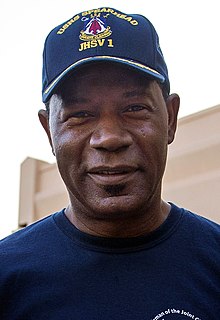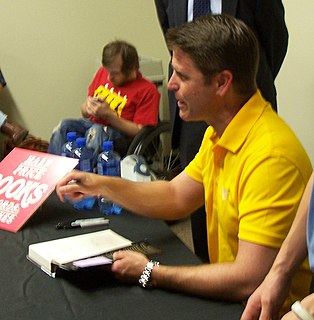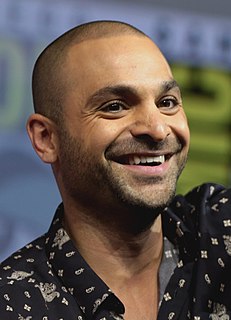A Quote by Tim Matheson
I must say Steven Spielberg was great to me, and I loved working with him. He called me up on the phone and was like, "I want you to be in this movie - 1941. There are a couple of parts. You can take whichever one you want. One of them is a main character who is involved in everything, and there's another character who has his own storyline and goes off on his own. He's probably the funnier, more unique character." I said, "Well let me do that second one."
Related Quotes
[John Musker] got me reading the mythology and we very early on we worked up a basic storyline centered around the character of Maui. He just seemed like a great character to kind of build a movie around. He's this mythic demi-god, bigger than life character. He pulled up islands with his magical fishhook. He slowed down the sun. He's Pan Pacific.
I want the young people to pay attention because, see, back when I first met Barack, we started dating, he had everything going for him. All right, ladies, listen to this. This is what I want you to be looking for. Yes, he was handsome-still is. I think so. He was charming, talented, and oh-so smart, truly. But that is not why I married him. Now, see, I want the fellas to pay attention to this. You all listening? What truly made me fall in love with Barack Obama was his character. You hear me? It was his character. It was his decency, his honesty, his compassion and conviction.
I definitely wanted to pay homage to what he did and use his performance in the first one as a foundation. But, I had to make it my own. I couldn't sit there and try to imitate Michael Clarke Duncan. I think that would have been disastrous. I had to make it my own. I tried to take as many nuances that he had with the character and utilize them as best I could, while creating a character that was unique to me. That's going to happen, no matter what.
The less you offer, the more readers are forced to bring the world to life with their own visual imaginings. I personally hate an illustration of a character on a jacket of a book. I never want to have someone show me what the character really looks like - or what some artist has decided the character really looks like - because it always looks wrong to me. I realize that I prefer to kind of meet the text halfway and offer a lot of visual collaborations from my own imaginative response to the sentences.
Many times - especially when I'm playing an historical character - I want to be really on target with how I create that character and really nuanced with who that human being might be. But I don't want to lose the likeness of me or the depth of my own personality. So meditation and my spirituality has helped me to realize that, yes, I want to get out of the way but I also want the ability to hold on to what the audience likes of what they see of me.
Character in many ways is everything in leadership. It is made up of many things, but I would say character is really integrity. When you delegate something to a subordinate, for example, it is absolutely your responsibility, and he must understand this. You as a leader must take complete responsibility for what the subordinate does. I once said, as a sort of wisecrack, that leadership consists of nothing but taking responsibility for everything that goes wrong and giving your subordinates credit for everything that goes well.
There's a lot of me in it. But the character is more egotistical. I'm also egotistical, but not the way the character is. This guy is successful, he has everything, but his wife has left him. The most important value - love - is missing. What is wrong with this institution called 'marriage'? What is wrong with this institution called 'the pursuit of happiness'?
He loved me. He'd loved me as long as he he'd known me! I hadn't loved him as long perhaps, but now I loved him equally well, or better. I loved his laugh, his handwriting, his steady gaze, his honorableness, his freckles, his appreciation of my jokes, his hands, his determination that I should know the worst of him. And, most of all, shameful though it might be, I loved his love for me.



































